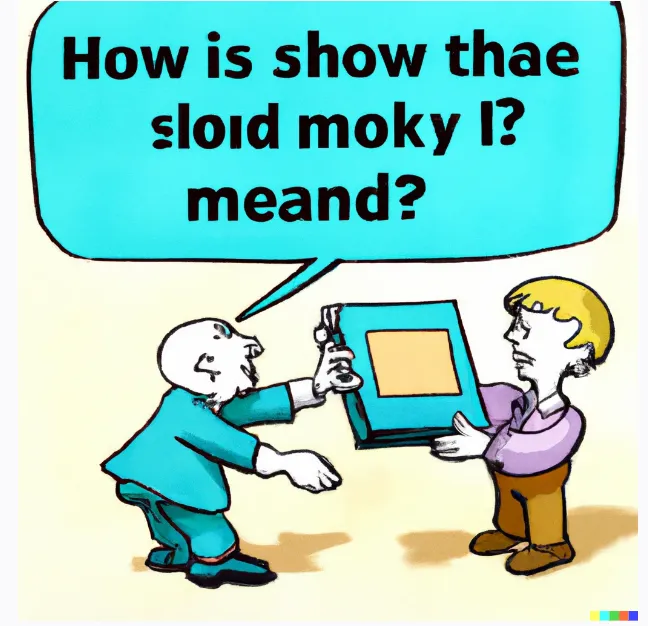We can start with how the Romans defined their own republic, before we get into the constituent parts as they understood them. The Latin term for the republic was, naturally enough, res publica (from which the modern word republic derives). Res is a very common, earthy sort of Latin word whose closest English equivalent is probably “matter”, with that wide range of possible meanings. Res can mean a “thing” more generally, “matter” in the scientific sense, but also in an abstract sense it can be an interest, a cause, a court case or other set of events, or property generally. Meanwhile publica means “public”, in the sense of something held in common or collectively or done for the collective good or interest. That gives res publica a wonderful kaleidoscope of meaning – it is the collective property (the “commonwealth”) of the citizenry but also the communal affairs, the matters of collective concern, the actions undertaken for the public benefit and indeed even the public benefit itself.
It is the things held in common. That ambiguity of meaning actually matters quite a bit because what the res publica was and what was important about it was different for different people. But naturally for some res to be publica, that meant other res needed to be privata; much like the polis was a collection of oikoi (and thus its ability to reach within the oikos as a unit was limited) so too the res publica was a collection of familiae (a word we’ll come back to, because it is complicated; it does not neatly mean “family”), the affairs of which were privatae, private.
What I think is worth noting as one of those subtle differences is how this contrasts with the Greek conception of the polis: a polis was fundamentally a collection of politai (citizens) whose institutions were their politeia (government, state). But the res publica is not a collection of citizens (Latin: cives), it is something distinct from them, held in common by them.
We can see this principle in the interesting phrase the Romans used to represent the senate: senatus populusque Romanus, “The Roman Senate and People” – usually abbreviated to SPQR.1 The division there is striking: there is a Roman People (the populus Romanus) and a Roman Senate and in some sense these are non-overlapping groups that together compose the republic. The Senate is not some sub-group of the populus but a distinct one with is a co-equal element of the republic with the populus.
Not only is the res publica thus not simply a collection of citizens, but it is in a real sense understood as a shared interest of different groups in the community, of which the populus is only one group. The Romans, more comfortable with open hierarchy among the citizens, can understand the republic as a balancing act between the interests of the political and social elite (the exact composition of which changes over time, but their mouthpiece is the Senate) and the people. The elite do not represent the people, they are not a select group of the people, but instead a distinct interest within the state which has its own legitimate expression, balanced against the expression of the people.
If all of that doesn’t make much sense, don’t worry: we’ll see these principles work themselves out in the way the res publica works and is structured.
Bret Devereaux, “Collections: How to Roman Republic 101, Part I: SPQR”, A Collection of Unmitigated Pedantry, 2023-07-21.
1. “Romanus” the adjective, modifies both senatus and populus, so both the Senate and the People are Roman. The phrase is often rendered into more idiomatic English as, “the Senate and People of Rome” to make that clearer.
April 8, 2024
QotD: The classical Roman Republic
April 7, 2024
Instructions for American Servicemen in Britain (1942)
Henry Getley on the US War Department publication Instructions for American Servicemen in Britain produced for incoming GIs on arrival in Britain from early in 1942:
[W]ith their troops pouring into this country from 1942 onwards to prepare for D-Day, officials at the US War Department did their best to make the culture clash as trouble-free as possible. One of their main efforts was issuing GIs with a seven-page foolscap leaflet called Instructions for American Servicemen in Britain.
It’s available in reprint as a booklet and makes fascinating reading, not least for its straightforward, jargon-free writing style and its overriding message – telling the Yanks to use “plain common horse sense” in their dealings with the British.
In parts, it now seems clumsy and condescending. But its purpose was praiseworthy – to try to get American troops to damp down the impression that they were overpaid, oversexed and over here. Many GIs qualified in all three aspects, of course, but you couldn’t blame the top brass for trying.
The leaflet paints a sympathetic (some would say patronising) picture for the incoming Americans of a Britain – “a small crowded island of forty-five million people” – that had been at war for three years, having initially stood alone against Hitler and braved the Blitz. Hence this “cradle of democracy” was now a “shop-worn and grimy” land of rationing, the blackout, shortages and austerity. But beneath the shabbiness, there was steel.
The British are tough. Don’t be misled by the British tendency to be soft-spoken and polite. If need be, they can be plenty tough. The English language didn’t spread across the oceans and over the mountains and jungles and swamps of the world because these people were panty-waists.
There were helpful hints about cricket, football, darts, pounds, shillings and pence, warm beer and badly-made coffee. And because we are two nations divided by a common language, the Yanks were urged to listen to the BBC.
In England the “upper crust” speak pretty much alike. You will hear the newscaster for the BBC (British Broadcasting Corporation). He is a good example, because he has been trained to talk with the “cultured” accent. He will drop the letter “r” (as people do in some sections of our own country) and will say “hyah” instead of “here”. He will use the broad “a”, pronouncing all the a’s in “banana” like the “a” in father.
However funny you may think this is, you will be able to understand people who talk this way and they will be able to understand you. And you will soon get over thinking it’s funny. You will have more difficulty with some of the local accents. It may comfort you to know that a farmer or villager from Cornwall very often can’t understand a farmer or villager in Yorkshire or Lancashire.
The GIs were warned against bravado and bragging, being told that the British were reserved but not unfriendly. “They will welcome you as friends and allies, but remember that crossing the ocean doesn’t automatically make you a hero. There are housewives in aprons and youngsters in knee pants in Britain who have lived through more high explosives in air raids than many soldiers saw in first-class barrages during the last war.”
April 4, 2024
QotD: What we mean by the term “indigenous”
Well, if by indigenous we mean “the minimally admixed descendants of the first humans to live in a place”, we can be pretty confident about the Polynesians, the Icelanders, and the British in Bermuda. Beyond that, probably also those Amazonian populations with substantial Population Y ancestry and some of the speakers of non-Pama–Nyungan languages in northern Australia? The African pygmies and Khoisan speakers of click languages who escaped the Bantu expansion have a decent claim, but given the wealth of hominin fossils in Africa it seems pretty likely that most of their ancestors displaced someone. Certainly many North American groups did; the “skraelings” whom the Norse encountered in Newfoundland were probably the Dorset, who within a few hundred years were completely replaced by the Thule culture, ancestors of the modern Inuit. (Ironically, the people who drove the Norse out of Vinland might have been better off if they’d stayed; they could hardly have done worse.)
But of course this is pedantic nitpicking (my speciality), because legally “indigenous” means “descended from the people who were there before European colonialism”: the Inuit are “indigenous” because they were in Newfoundland and Greenland when Martin Frobisher showed up, regardless of the fact that they had only arrived from western Alaska about five hundred years earlier. Indigineity in practice is not a factual claim, it’s a political one, based on the idea that the movements, mixtures, and wholesale destructions of populations since 1500 are qualitatively different from earlier ones. But the only real difference I see, aside from them being more recent, is that they were often less thorough — in large part because they were more recent. In many parts of the world, the Europeans were encountering dense populations of agriculturalists who had already moved into the area, killed or displaced the hunter-gatherers who lived there, and settled down. For instance, there’s a lot of French and English spoken in sub-Saharan Africa, but it hasn’t displaced the Bantu languages like they displaced the click languages. Spanish has made greater inroads in Central and South America, but there’s still a lot more pre-colonial ancestry among people there than there is pre-Bantu ancestry in Africa. I think these analogies work, because as far as I can tell the colonization of North America and Australia look a lot like the Early European Farmer and Bantu expansions (technologically advanced agriculturalists show up and replace pretty much everyone, genetically and culturally), while the colonization of Central and South America looks more like the Yamnaya expansion into Europe (a bunch of men show up, introduce exciting new disease that destabilizes an agricultural civilization,1 replace the language and heavily influence the culture, but mix with rather than replacing the population).
Some people argue that it makes sense to talk about European colonialism differently than other population expansions because it’s had a unique role in shaping the modern world, but I think that’s historically myopic: the spread of agriculture did far more to change people’s lives, the Yamnaya expansion also had a tremendous impact on the world, and I could go on. And of course the way it’s deployed is pretty disingenuous, because the trendier land acknowledgements become, the more the people being acknowledged start saying, “Well, are you going to give it back?” (Of course they’re not going to give it back.) It comes off as a sort of woke white man’s burden: of course they showed up and killed the people who were already here and took their stuff, but we’re civilized and ought to know better, so only we are blameworthy.
More reasonable, I think, is the idea that (some of) the direct descendants of the winners and losers in this episode of the Way Of The World are still around and still in positions of advantage or disadvantage based on its outcome, so it’s more salient than previous episodes. Even if, a thousand years ago, your ancestors rolled in and destroyed someone else’s culture, it still sucks when some third group shows up and destroys yours. It’s just, you know, a little embarrassing when you’ve spent a few decades couching your post-colonial objections in terms of how mean and unfair it is to do that, and then the aDNA reveals your own population’s past …
Reich gets into this a bit in his chapter on India, where it’s pretty clear that the archaeological and genetic evidence all point to a bunch of Indo-Iranian bros with steppe ancestry and chariots rolling down into the Indus Valley and replacing basically all the Y chromosomes, but his Indian coauthors (who had provided the DNA samples) didn’t want to imply that substantial Indian ancestry came from outside India. (In the end, the paper got written without speculating on the origins of the Ancestral North Indians and merely describing their similarity to other groups with steppe ancestry.) Being autochthonous is clearly very important to many peoples’ identities, in a way that’s hard to wrap your head around as an American or northern European: Americans because blah blah nation of immigrants blah, obviously, but a lot of northern European stories about ethnogenesis (particularly from the French, Germans, and English) draw heavily on historical Germanic tribal migrations and the notion of descent (at least in part) from invading conquerors.
One underlying theme in the book — a theme Reich doesn’t explicitly draw out but which really intrigued me — is the tension between theory and data in our attempts to understand the world. You wrote above about those two paradigms to explain the spread of prehistoric cultures, which the lingo terms “migrationism” (people moved into their neighbors’ territory and took their pots with them) and “diffusionism”2 (people had cool pots and their neighbors copied them), and which archaeologists tended to adopt for reasons that had as much to do with politics and ideology as with the actual facts on (in!) the ground. And you’re right that in most cases where we now have aDNA evidence, the migrationists were correct — in the case of the Yamnaya, most modern migrationists didn’t go nearly far enough — but it’s worth pointing out that all those 19th century Germans who got so excited about looking for the Proto-Indo-European Urheimat were just as driven by ideology as the 21st century Germans who resigned as Reich’s coauthors on a 2015 article where they thought the conclusions were too close to the work of Gustaf Kossinna (d. 1931), whose ideas had been popular under the Nazis. (They didn’t think the conclusions were incorrect, mind you, they just didn’t want to be associated with them.) But on the other hand, you need a theory to tell you where and how to look; you can’t just be a phenomenological petri dish waiting for some datum to hit you. This is sort of the Popperian story of How Science Works, but it’s more complex because there are all kinds of extra-scientific implications to the theories we construct around our data.
The migrationist/diffusionist debate is mostly settled, but it turns out there’s another issue looming where data and theory collide: the more we know about the structure and history of various populations, the more we realize that we should expect to find what Reich calls “substantial average biological differences” between them. A lot of these differences aren’t going to be along axes we think have moral implications — “people with Northern European ancestry are more likely to be tall” or “people with Tibetan ancestry tend to be better at functioning at high altitudes” isn’t a fraught claim. (Plus, it’s not clear that all the differences we’ve observed so far are because one population is uniformly better: many could be explained by greater variation within one population. Are people with West African ancestry overrepresented among sprinters because they’re 0.8 SD better at sprinting, or because the 33% higher genetic diversity among West Africans compared to people without recent African ancestry means you get more really good sprinters and more really bad ones?) But there are a lot of behavioral and cognitive traits where genes obviously play some role, but which we also feel are morally weighty — intelligence is the most obvious example, but impulsivity and the ability to delay gratification are also heritable, and there are probably lots of others. Reich is adorably optimistic about all this, especially for a book written in 2018, and suggests that it shouldn’t be a problem to simultaneously (1) recognize that members of Population A are statistically likely to be better at some thing than members of Population B, and (2) treat members of all populations as individuals and give them opportunities to succeed in all walks of life to the best of their personal abilities, whether the result of genetic predisposition or hard work. And I agree that this is a laudable goal! But for inspiration on how our society can both recognize average differences and enable individual achievement, Reich suggests we turn to our successes in doing this for … sex differences! Womp womp.
Jane Psmith and John Psmith, “JOINT REVIEW: Who We Are and How We Got Here, by David Reich”, Mr. and Mrs. Psmith’s Bookshelf, 2023-05-29.
1. aDNA works for microbes too, and it looks like Y. pestis, the plague, came from the steppe with the Yamnaya. It didn’t yet have the mutation that causes buboes, but the pneumonic version of the disease is plenty deadly, especially to the Early European Farmers who didn’t have any protection against it. In fact, as far as we can tell, in all of human history there have only been four unique introductions of plague from its natural reservoirs in the Central Asian steppe: the one that came with or slightly preceded the Yamnaya expansion around 5kya, the Plague of Justinian, the Black Death, and an outbreak that began in Yunnan in 1855. The waves of plague that wracked Europe throughout the medieval and early modern periods were just new pulses of the strain that had caused Black Death. Johannes Krause gets into this a bit in his A Short History of Humanity, which I didn’t actually care for because his treatment of historic pandemics and migrations is so heavily inflected with Current Year concerns, but I haven’t found a better treatment in a book so it’s worth checking it out from the library if you’re interested.
2. I cheated with that “pots not people” line in my earlier email; it usually gets (got?) trotted out not as a bit of epistemological modesty about what the archaeological record is capable of showing, but as a claim that the only movements involved were those of pots, not of people.
April 2, 2024
Publishing and the AI menace
In the latest SHuSH newsletter, Ken Whyte fiddles around a bit with some of the current AI large language models and tries to decide how much he and other publishers should be worried about it:
The literary world, and authors in particular, have been freaking out about artificial intelligence since ChatGPT burst on the scene sixteen months ago. Hands have been wrung and class-action lawsuits filed, none of them off to auspicious starts.
The principal concern, according to the Authors Guild, is that AI technologies have been “built using vast amounts of copyrighted works without the permission of or compensation to authors and creators,” and that they have the potential to “cheaply and easily produce works that compete with — and displace — human-authored books, journalism, and other works”.
Some of my own work was among the tens of thousands of volumes in the Books3 data set used without permission to train the large language models that generate artificial intelligence. I didn’t know whether to be flattered or disturbed. In fact, I’ve not been able to make up my mind about anything AI. I’ve been playing around with ChatGPT, DALL-E, and other models to see how they might be useful to our business. I’ve found them interesting, impressive in some respects, underwhelming in others.
Unable to generate a newsletter out of my indecision, I called up my friend Thad McIlroy — author, publishing consultant, and all-around smart guy — to get his perspective. Thad has been tightly focused on artificial intelligence for the last couple of years. In fact, he’s probably the world’s leading authority on AI as it pertains to book publishing. As expected, he had a lot of interesting things to say. Here are some of the highlights, loosely categorized.
THE TOOLS
I described to Thad my efforts to use AI to edit copy, proofread, typeset, design covers, do research, write promotional copy, marketing briefs, and grant applications, etc. Some of it has been a waste of time. Here’s what I got when I asked DALL-E for a cartoon on the future of book publishing:
In fairness, I didn’t give the machine enough prompts to produce anything decent. Like everything else, you get out of AI what you put into it. Prompts are crucial.
For the most part, I’ve found the tools to be useful, whether for coughing up information or generating ideas or suggesting language, although everything I tried required a good deal of human intervention to bring it up to scratch.
I had hoped, at minimum, that AI would be able to proofread copy. Proofreading is a fairly technical activity, based on rules of grammar, punctuation, spelling, etc. AI is supposed to be good at following rules. Yet it is far from competent as a proofreader. It misses a lot. The more nuanced the copy, the more it struggles.
March 5, 2024
QotD: Begging the question
… I hate, hate — with a burning passion — the modern use of the phrase “begs the question”. That’s NOT what it means, damn it!! “Begs the question” is a translation of the Latin petitio principii, which is a time-hallowed description of one of the most common of mankind’s logical fallacies — an “argument” that assumes the conclusion in the premises. Please don’t ever use “begs the question” in the modern sense — the fact that we don’t know what it actually means is one of the reason it’s so depressingly common today.
Severian, “Mental Middlemen II: Sex and the City and Self-Confidence”, Rotten Chestnuts, 2021-05-06.
February 17, 2024
The pronoun police claim another scalp
Brendan O’Neill recounts the very sad tale of a 90-year-old woman who has been cancelled by the charity she’d volunteered for over 60 years for questioning mandatory “preferred pronouns”:

Two people at EuroPride 2019 in Vienna holding an LGBTQ+ pride rainbow flag featuring a design by Daniel Quasar; this variation of the rainbow flag was initially promoted as “Progress” a PRIDE Flag Reboot.
Photo by Bojan Cvetanović via Wikimedia Commons.
This strange case tells us so much about our times. It confirms that pronounology is tantamount to a religion among the godless new elites. Showy declarations of one’s pronouns play an entirely doctrinal role. They’re the means through which the new establishment – and those who aspire to enter its rarefied ranks – signal their fealty to the god of political correctness, and to that especially angry god of transgenderism. This is why anyone, like Mrs Itkoff, who questions the faddish mumbo jumbo of putting “he / him”, “she / her” or “they / them” after one’s name must be dealt with severely – because they’re not only querying a way of speaking; they’re blaspheming against the entire cult of correct-thought that the new elites have built in order that they might distinguish between good people and bad people, between in-group folk and out-group folk.
Ostentatious pronoun declaration serves no practical purpose. Consider that even Joe Biden has declared his pronouns. No one is going to mistake this 81-year-old fella for a she / her or they / them. We know dozy old Joe’s a bloke. No, he says “he / him” not to be helpful but to signal his unswerving allegiance to elite opinion, to demonstrate his devotion to the new ruling ideologies. This is why the political class, the corporate world and sharp-elbowed youths who want to get their hands on those levers of cultural power make such a big deal of declaring their pronouns – because they know this religious incantation is a door-opener par excellence.
The reason I never use “preferred pronouns” is simple: I don’t subscribe to the neo-religion of gender ideology, which would have us believe that there are two you’s – your mysterious inner gendered soul and your outward biological appearance. Every time we declare our pronouns, or genuflect to someone else’s “preferred pronouns”, we are implicitly buying into this very modern delusion, this woke hocus pocus. I’m with Mrs Itkoff – the idea that people can choose their pronouns, rather than being allocated pronouns that accord with the truth and reason of their biological sex, doesn’t “make sense to me”.
The Itkoff case also confirms how cavalierly despotic woke has become, especially its post-sex, post-truth trans wing. The trans ideology has enacted numerous cruelties on women. Rapists in women’s prisons, men in women’s domestic-violence shelters, women’s sports almost entirely upended by an invasion of mediocre blokes who’ve changed their name to Crystal or whatever – there is no female right, no basic tenet of decency, that cannot be sacrificed at the altar of gender validation. Now, even the charitable urges of an elderly lady can be thrown on to the bonfire of the cruelties – goodness erased in the name of never offending men who think they’re women. That so-called progressives back this sacrifice of women’s right to organise and speak as they see fit in the name of appeasing delusional men is concerning in the extreme.
Then there’s the ageism. We need to talk about the searing hostility of the woke towards older people, especially older women. You don’t even have to be 90. Witness the ceaseless haranguing of “Karens”, a derogatory term for middle-aged, mostly white women who dare to stand up for themselves in public. They’ve become the hate figures of our time. The author Victoria Smith refers to it as “hag hate”, an “ageist misogyny” aimed at women who are perceived not only to be past their supposed sell-by date, but also, even worse, to be possessed of “incorrect” beliefs. The old ducking of hags in open water has been replaced by the shaming of hags on open web forums.
Partly, it’s just old-world ageist sexism rehabilitated in PC lingo. It should not be surprising that the cult of transgenderism – an ideology that indulges men’s jealous coveting of the hyper-sexualised female body – should be so staggeringly hostile to older women. To women who have “sagged”, whether physically or morally, and thus put themselves beyond the cravings of trans activists who seem to value only the young, the pert, the sexualised. That women are human beings, who go through every stage of human existence, seems to be beyond the moral grasp of trans ideologues for whom womanhood is costume and little more.
But there’s something else going on, too. Today’s fashionable ageism is not only misogynistic – it’s Maoist. When I read about the case of Fran Itkoff, it was Maoism that came to mind. For wasn’t that also a crusade against “the old”? Those hotheaded cancellers of 1960s China openly declared war on the “Four Olds” – old ideas, old culture, old customs and old habits. They demonised and tortured those who gave voice to “old” ideals. Are we not witnessing something similar today? Statues of “problematic” historical figures are torn down, “offensive” old literature is rewritten, old people – like Fran – are sent into social oblivion. Wokeness is Maoism with better PR. We need to do something about it before we arrive in a world where people like Mrs Itkoff are not only cancelled but are also made to stand in public squares with placards around their necks identifying them as rancid old wrongthinkers. It is time to defend “the old” from the crazed young of the woke crusade.
February 1, 2024
QotD: English hypocrisy, spoken
Sir Guthrie is a hybrid, a scientist-turned-apparatchik. “I’m sorry to be a nuisance,” he says, in that suave, hypocritical English way, which is at once admirable and disagreeable. This manner of speaking, of never saying quite what you mean, was illustrated in a French book of the time, La Vie anglaise, which tried to explain English manners to the French. When an Englishman says, “We must meet again,” the author explains, he means: “I hope never to see you again”; and when he says, “I know a little about”, he means: “I am an expert in”, or possibly even “the world-expert in”.
Alas, this indirect way of speaking, always tinged with irony and humour, has almost disappeared in favour of a cruder and less amusing manner of communicating. Literal-mindedness has replaced subtle codification, and with it, a people who were once subtle, if sometimes perfidious, have become crass and often aggressive. Irony, which the whole population once both understood and employed, and was so strong an aspect of the national character, has now disappeared, replaced by a disposition to querulousness and indignation.
Theodore Dalrymple, “What Seventy Years Have Wrought”, New English Review, 2019-10-26.
January 17, 2024
QotD: Did Hari Seldon live in vain?
Both cliodynamics and psychohistory assume these differences and problems “come out in the wash” over a long enough period and a big enough sample. It doesn’t take much of a counterfactual thought experiment about how small changes by individuals could lead to enormous historical differences to see that they don’t. The defense that cliodynamics only deals in probabilities is little comfort here: in fact the apparent randomness (which one may argue is merely complexity on a scale that is beyond simulation) swallows the patterns. One could easily argue, for instance, that the extremely unlikely career of our fellow Temujin is a necessary cause (albeit merely one of many, several of which might be considered deeply improbable) for the fact that all commercial pilots and air traffic controllers worldwide have to learn a form of English (which one may well assume has its own structural knock-on effects in terms of the language used for business and from there the outsized cultural impact of English-speaking countries).1 No one in 1158 was likely to have supposed that English – a language at that time not even spoken by the English nobility (they spoke French)! – would become the first truly global lingua franca (and arguably the only one, though here caveats may overwhelm the claim) and thus the language of aviation. But that is precisely the kind of big structural change that is going to be really impactful on all sorts of other questions, like patterns of commerce, wealth, culture and influence.
Such complex causation defies general laws (even before we get into the fact that humans also observe history, which creates even more complexity) with such tremendous import from such unlikely events in an experiment which can only be run once without a control.
The other problem is evidence. Attempting to actually diagnose and model societies like this demands a lot of the data and not merely that you need a lot of it. You need consistent data which projects very far back in history which is accurate and fairly complete, so that it can be effectively compared. Trying, for instance, to compare ancient population estimates, which often have error bars of 100% or more, with modern, far more precise population estimates is bound to cause some real problems in teasing out clear correlations in data. The assumptions you make in tuning those ancient population figures can and will swallow any conclusions you might draw from the comparison with modern figures beyond the fairly obvious (there are more people now). But even the strongest administrative states now have tremendous difficulty getting good data on their own lower classes! Much of the “data” we think we have are themselves statistical estimates. The situation even in the very recent past is much worse and only degrades from there as one goes further back!
By way of example, I was stunned that Turchin figures he can identify “elite overproduction” and quantify wealth concentration into the deep past, including into the ancient world (Romans, late Bronze Age, etc). I study the Romans; their empire is only 2,000 years ago and moreover probably the single best-attested ancient society apart from perhaps Egypt or China (and even then I think Rome comes out quite solidly ahead). And even in that context, our estimates for the population of Roman Italy range from c. 5m to three to four times that much. Estimates for the size of the Roman budget under Augustus or Tiberius (again, by far the best attested period we have) range wildly (though within an order of magnitude, perhaps around 800 million sestertii). Even establishing a baseline for this society with the kind of precision that might let you measure important but modest increases in the size of the elite is functionally impossible with such limited data.
When it comes to elites, we have at best only one historical datapoint for the size of the top Roman census class (the ordo equester) and it’s in 225 BC, but as reported by Polybius in the 140s and also he may have done the math wrong and it also isn’t clear if he’s actually captured the size of the census class! We know in the imperial period what the minimum wealth requirement to be in the Senate was, but we don’t know what the average wealth of a senator was (we tend to hopefully assume that Pliny the Younger is broadly typically, but he might not have been!), nor do we know the size of the senatorial class itself (formed as a distinct class only in the empire), nor do we know how many households there were of senatorial wealth but which didn’t serve in the Senate because their members opted not to run for public office. One can, of course, make educated guesses for these things (it is often useful and important to do so), but they are estimates founded on guesses supported by suppositions; a castle of sand balanced atop other castles of sand. We can say with some confidence that the Late Roman Republic and the Early Roman Empire saw tremendous concentrations of wealth; can we quantity that with much accuracy? No, not really; we can make very rough estimates, but these are at the mercy of their simplifying assumptions.
And this is, to be clear, the very best attested ancient society and only about 2,000 years old at that. The data situation for other ancient societies can only be worse – unless, unless one begins by assuming elite overproduction is a general feature of complex, wealthy societies and then reads that conclusion backwards into what little data exists. But that isn’t historical research; it is merely elevating confirmation bias to a research methodology.
As noted, I have other nitpicks – particularly the tendency to present very old ideas as new discoveries, like secular cycles (Polybius, late 2nd century BC) or war as the foundation of complex societies (Heraclitus, d. c. 475 BC) without always seeming to appreciate just how old and how frequently recurring the idea is (such that it might, for instance, be the sort of intuitive idea many people might independently come up with, even if it was untrue or that it might be the kind of idea that historians had considered long ago and largely rejected for well established reasons) – but this will, I hope, suffice for a basic explanation of why I find the idea of this approach unsatisfying. This is, to be clear, not a rejection of the role of data or statistics in history, both of which can be tremendously important. Nor is it a rejection of the possible contributions of non-historians (who have important contributions to make), though I would ask that someone wading into the field familiarize themselves with it (perhaps by doing some traditional historical research), before declaring they had revolutionized the field. Rather it is an argument both that these things cannot replace more traditional historical methods and also that their employment, like the employment of any historical method, must come with a very strong dose of epistemic humility.
Psychohistory only works in science fiction where the author, as the god of his universe, can make it work. Today’s psychohistorians have no such power.
Bret Devereaux, “Fireside Friday: October 15, 2021”, A Collection of Unmitigated Pedantry, 2021-10-15.
1. For those confused by the causation, the Mongols are considered the most likely vector for the transmission of gunpowder from China, where it was invented, to Europe. Needless to say, having a single polity spanning the entire Eurasian Steppe at the precise historical moment for this to occur sure seems like a low probability event! In any event, European mastery of gunpowder led directly into European naval dominance in the world’s oceans (its impact on land warfare dominance is much more complex) which in turn led to European dominance at sea. At the same time, the English emphasis on gunnery over boarding actions early in this period (gunpowder again) provided a key advantage which contributed to subsequent British naval dominance among European powers (and also the British navy’s “cult of gunnery” in evidence to the World Wars at least), which in turn allowed for the wide diffusion of English as a business and trade language. In turn, American and British prominence in the post-WWII global order made English the natural language for NATO and thus the ICAO convention that English be used universally for all aircraft communication.
December 3, 2023
Doctor What-are-your-pronouns
I don’t watch Doctor Who although I have fond childhood memories of watching William Hartnell and Patrick Troughton’s respective “Doctors” and I caught one or two episodes of Jon Pertwee and Tom Baker in the role. That the show is still running on British TV is a wonder … but it got headlines for a recent installment that had the Doctor being told off for “assuming” an alien creature’s pronouns:
Remember when Doctor Who was fun? Watching it now is about as much fun as being publicly humiliated at work by some jumped-up nonbinary form-filler from HR who thinks he’s amazing because he’s painted one of his fingernails black.
A good example of this joylessness is a scene in the most recent special, “The Star Beast”, which has been treated by right-on broadsheet types as a moment of profound importance. Yet all that happened was a transwoman character – played by transwoman actor Yasmin Finney – lectured the Doctor about pronouns. In a moment of unforgivable Time Lord-cis privilege, the Doctor had assumed a diminutive alien called Beep the Meep used male pronouns. What was he thinking?
It is this sort of banal plot line that encapsulates the shrivelling ambition of science fiction. Once the genre dared to hold up a provocative mirror to contemporary society. From Mary Shelley’s Frankenstein to Octavia Butler’s Parable of the Sower, sci-fi challenged lazy assumptions. Now it revels in groupthink that feeds the collective self-righteousness of indolent teenagers and adults with teenage imaginations.
This matters, because at its best sci-fi can dazzle and even inspire us with the potential strangeness of the imagined future. A few years ago I made a series presented by William Shatner tracing the cultural and technological influence of Star Trek. In one episode, the inventor of the mobile phone, Martin Cooper, told director Julian Jones how he had been inspired by the example of Captain Kirk’s hand-held “communicator”. Will anyone invent something inspired by the new Doctor Who? A new set of guidelines for pronoun use, perhaps?
You can tell how out of touch Doctor Who has now become by the fact its enormously pompous showrunner, Russell T Davies, seemed to think that the new series would shock viewers with its “progressive” radicalism. The only shock was the alien pronoun scene’s patent stupidity.
I mean, why on Earth would the Doctor assume the gender of any alien? He has been encountering aliens with no fixed gender since the 1960s. The Doctor has effectively been asking aliens for their pronouns for nigh on 60 years.
Davies may think he’s blazing a trail with the new series of Doctor Who. But the truth is that gender-bending in science fiction is as old as the frozen hills of Gallifrey. In The War of the Worlds, published 125 years ago, HG Wells regaled us with Martian invaders who reproduced asexually. And hermaphrodites pepper sci-fi, from the work of Philip K Dick to that of Ursula K Le Guin.
December 2, 2023
November 25, 2023
QotD: Political language mirrors the ritualized nature of political life
Elected officials speak in a language that’s unique to their status group. If you’ve ever tried to attend a city council or school board meeting, you’ve watched them open with the onanistic portion of the thing, handing out certificates and doing grip-and-grins. “Bob, I just want to echo your wonderful comments about this amazing program.” They see themselves first, then others of their class, then they go blind. The first duty of a public official is to take a lot of selfies.
In a crisis, they recite. We’ve all watched them do this. “This is not who we are.” “Let me be clear: Hate has no home here.” You know what they’re going to say before they say it, and you know the tone before you hear it. The current mayor of Los Angeles is very fond of “our message has been very clear” and “we’re going to link arms and stand together”, so you’re not surprised to hear her respond to a question with something like, “Well, Maria, thank you for that great question. Our message has been very clear: We’re going to link arms and stand together.” Listening to elected officials speak is qualitatively different than listening to people speak. They perform the ritual behaviours of their status group.
[…]
They become debilitated by a lifetime of ritual language. If a staffer hasn’t told them to look somber and say “I’m sorry for your loss”, they don’t know how. It isn’t a line they’ve been equipped with for the event. Hey man your kids burned to death I almost lost my Corvette once, man. All kiddin’ aside, man!
[…]
They aren’t people anymore. They can’t talk like people. They don’t have normal human affect. What’s particularly interesting is that this learned inability to read human cues is recent and narrow. Bill Clinton, as much a politician as anyone who has ever lived, had a well-known ability to see people and signal his empathy, or at least to do a brilliant job of faking it. Similarly, Donald Trump is obviously very very fond of Donald Trump, who is amazing, trust me, everybody says so, but he has a normal human ability to spontaneously bullshit with the normals. Elite disconnection isn’t inevitable.
The broken personal thing behind all the broken institutional things is a loss of basic human connection and behavior. It’s a learned disconnection, and they can’t hide it.
Chris Bray, “The Mask Becomes Your Face”, Tell Me How This Ends, 2023-08-22.
November 24, 2023
It sometimes seems that the only thing that isn’t “violence” these days is actual violence
David Sedaris at The Free Press:

“Gen Z” by EpicTop10.com is licensed under CC BY 2.0
Words, we are now regularly reminded, are violence. So too is silence. I read not long ago that capitalism is violence, as is misgendering someone. Ignoring someone is violence, but so too is paying them attention. A friend recently called on one of her assistants to deliver a statistic during a business meeting and was later charged with “casual violence”. Apparently Deborah needed to give advance warning that she was going to ask a question, one that might possibly put her employee — someone who was well paid to know stuff and be able to spew it forth — on the spot.
Who are these hothouse flowers, all so easily and consistently wounded? People whose parents never hit them, that’s who. People who don’t know what real pain is, but still want to throw the word around. When I was a child, a slap across the face was too minor to qualify as “casual violence”. It was simply what you got for talking back or holding everyone up. It never hurt all that much; what stung was the swiftness of it, the surprise. Who knew my mother could move so fast, like someone belted in the martial arts. I don’t feel like it traumatized me to be knocked around a little. Blood was rarely drawn. No limbs were broken. Could my parents have made their point without resorting to violence? Probably, but it would have taken more time, and with six kids to dress and get out the door that was a precious commodity. I see parents now who worry they’re being abusive if they don’t spend at least an hour putting their child to bed. An hour! I said to my sister, Amy, “Do you remember ever once being tucked in? Can you imagine Mom and Dad reading to us, or singing? Can you imagine them kissing us?”
“Ugh,” she said. “Stop!”
And look at us! We’re fine. We can handle stuff. We never get offended by anything.
Our parents thought we were okay, at best, and I think that really helped us in the long run. Ask someone now if they have kids, and they’re pretty much guaranteed to use the word amazing, as in “I have an amazing six-year-old daughter.”
“Amazing because she just discovered a cure for herpes or because she speaks three words of Spanish,” I always want to ask. “I mean, just how low have you set that bar?”
One of the worst things that’s happened to us as a country is that people are having fewer children — 1.8 as opposed to five 50 years ago. Sure, it’s good for the environment — fewer people means less demand for resources. The problem is that single children receive a freakish amount of love and attention. Most graduate at least twelve times before leaving high school. Their every move is recorded and celebrated, and it gives them an outsize sense of their own importance.
The solution isn’t for every couple to start having five kids again, but maybe for one chosen couple to have five, and the other four couples to go without — either have a full litter you can’t pay that much attention to, or nothing at all.
If our schools are a mess it’s in large part due to these parents who think their kids are special, who get mad if you contradict their brilliance, if you give them a bad grade or, God forbid, try to take their phones away. Had one of my teachers told my mother that I was acting up in class, she’d have said, “Thank you so much for letting me know.” Then she’d have come to wherever I was — in front of the TV, or at the side of the TV making my way to the front of it — and slapped my sister Gretchen so hard her eyes would have crossed.
“What was that for?” Gretchen would have asked.
“Oops, wrong kid,” my mother would have said. Then she’d have slapped me twice as hard to make up for her mistake.
November 21, 2023
QotD: Collabortage
Yes, that’s a new word in the blog title: collabortage. It’s a tech-industry phenomenon that needed a name and never had one before. Collabortage is what happens when a promising product or technology is compromised, slowed down, and ultimately ruined by a strategic alliance between corporations that was formed (at least ostensibly) to develop it and bring it to market.
Collabortage always looks accidental, like a result of exhaustion or management failure. Contributing factors tend to include: poor communication between project teams on opposite sides of an intercorporate barrier, never-resolved conflicts between partners about project objectives, understaffing by both partners because each expects the other to do the heavy lifting, and (very often) loss of internal resource-contention battles to efforts fully owned by one player.
Occasionally the suspicion develops that collabortage was deliberate, the underhanded tactic of one partner (usually the larger one) intended to derail a partner whose innovations might otherwise have disrupted a business plan.
Eric S. Raymond, “Collabortage”, Armed and Dangerous, 2011-02-16.
November 19, 2023
November 12, 2023
“When I use a word … it means just what I choose it to mean”
Andrew Sullivan on how our “elites” now live in a world that the renowned Oxford academic Charles Lutwidge Dodgson1 predicted in his writings a century and a half ago:

“Israeli flag, Tel Aviv, Star of David” by Tim Pearce, Los Gatos is licensed under CC BY 2.0 .
The word “genocide” may be the one rendered most meaningless in our discourse. It has some steep competition, of course. “White supremacy” now means asking someone to show up on time. “Trauma” means being referred to with the wrong pronoun. And “genocide” can, among other things, mean debating experimental sex reassignment procedures for children. (Go look up #transgenocide on Twitter and weep.)
But the supporters of Hamas and of the Palestinians have seized the g-word with particular zeal. And who can blame them? There’s a real, adolescent frisson in accusing the victims of the worst genocide in modern history of being genocidal themselves. “Israel, we charge you with genocide” is a common chant in many of the pro-Palestinian protests. “Genocide Joe” has been trending on Twitter. Eight hundred artists signed an open letter calling the Israeli counteract in Gaza “a genocide”. Yale professor Zareena Grewal channeled much of the “decolonizing” left: “Israeli [sic] is a murderous, genocidal settler state and Palestinians have every right to resist through armed struggle”.
It’s not just the activists. Congresswoman Tlaib has accused Biden of “funding Netanyahu’s genocide”, and said “We are literally watching people commit genocide” — referring to the blast next to a Gaza hospital caused by a Hamas rocket. Congresswoman Omar retweeted a photo of dead kids with the caption “CHILD GENOCIDE IN PALESTINE” — but the photo was from a 2013 chemical weapons attack in Syria. A State Department official tweeted that Biden is “complicit in genocide”. A UN official just quit his post, adding:
In just 4 weeks, Israel with US backing has cut off food, water, power & then brutally exterminated more than 10,000 imprisoned civilian men, women & children in Gaza, destroyed their homes, churches, mosques, schools & hospitals because they are Palestinians. Name it? #Genocide.
The devastation in Gaza is horrifying to watch, worse than horrifying. Anyone who isn’t deeply troubled by the mass death has lost humanity. But the UN official, and all those echoing him, are full of it. The basic definition of “genocide” provided by the State Department is “the deliberate killing of a large number of people from a particular nation or ethnic group with the aim of destroying that nation or group.”
The key, defining thing here is the aim. Horrifying massacres may or may not be genocidal, depending on the intention. The Hiroshima bomb, for example, was devastating, but it was aimed at ending the war, not obliterating the Japanese people as a race. And if Israel were interested in the “genocide” of Palestinian Arabs, it has had the means to accomplish it for a very long time. And yet, for some reason, the Arab population of Israel and the occupied territories has exploded since 1948, and the Arabs in Israel proper have voting rights, and a key presence in the Knesset.
This is not to exonerate Israel entirely. I’ve had strong words for the Netanyahu governments over the years. And Israeli politicians, on the far right, have used foul rhetoric and deemed the Palestinians subhuman in some respects. Bibi swiftly suspended a rogue minister for saying a nuke could be dropped on Gaza. There are anti-Arab maniacs among the West Bank settlers and in Bibi’s cabinet. But a policy of Arab genocide? Please.
The only people actively and proudly engaged in genocide are Hamas. The marchers on the streets this weekend will not be opposing genocide; they will be defending its perpetrators. It’s right there in the Hamas founding charter:
[All of Israel, Gaza and the West Bank is] consecrated for future Moslem generations until Judgement Day. It, or any part of it, should not be squandered: it, or any part of it, should not be given up. … The Day of Judgement will not come about until Moslems fight the Jews (killing the Jews), when the Jew will hide behind stones and trees. The stones and trees will say O Moslems, O Abdulla, there is a Jew behind me, come and kill him.
This is not mere rhetoric. On October 7, we saw what genocide is in practice. Hamas didn’t kill civilians as a tragic consequence of attacks on military targets. Its torture and murder of Jewish civilians was its core mission. And if Hamas had the capacity, they would gladly enact a second Holocaust, and they have proudly said so, with even more sadism than the Nazis. They would kill every Jew they could.
1. Lewis Carroll, “an English author, poet, mathematician and photographer. His most notable works are Alice’s Adventures in Wonderland (1865) and its sequel Through the Looking-Glass (1871). He was noted for his facility with word play, logic, and fantasy. His poems ‘Jabberwocky’ (1871) and ‘The Hunting of the Snark’ (1876) are classified in the genre of literary nonsense.” (Wiki)









